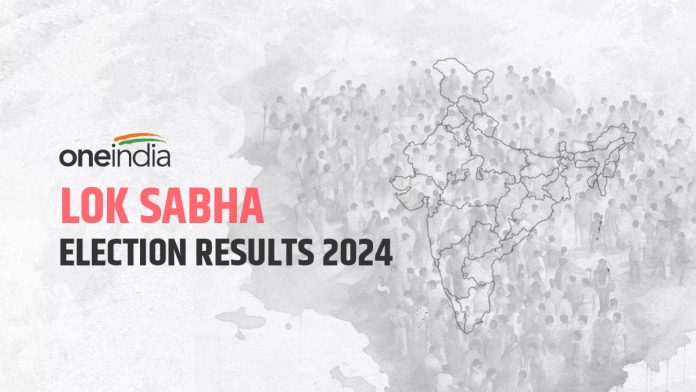A comprehensive analysis of India’s 18th Lok Sabha Election 2024
India has a population of 1.4 billion, which is more than 4 times the population of the United States, 6 times that of Brazil, 5 times that of Indonesia, 36 times that of Canada, and 37 times that of Saudi Arabia. Conducting an election for such a large population is a monumental task for government officials. The 18th Lok Sabha Elections, held from April 19 to June 1, 2024, spanned 44 days and took place in seven phases.
The 18th Lok Sabha elections are considered the most expensive elections to date, with an estimated expenditure of 1.35 lakh crore rupees for the 2024 elections. This amount surpasses the 1.2 lakh crore rupees spent on the 2020 U.S. elections and is nearly three times the 55 thousand crore rupees spent on the 2019 elections in India. On average, political parties spent 1,400 rupees per voter, given there were 6420 lakh voters. This raises the question: who truly benefited from this election after spending such enormous sums of money?
The 2024 Lok Sabha elections had numerous advantages and disadvantages. We will explore these aspects and raise some important questions for consideration.
Voter Turnout
In 2019, the total number of voters was 603 million. By 2024, this number increased to 642 million, adding nearly 39 million voters, which is a positive sign of growing citizen awareness. However, over 1.9 million citizens were excluded from Assam’s final NRC, leaving unknown how many voted and how many were missing from the list. Similarly, at least 500 voters were reportedly deprived of their votes in one location in the Sambhal constituency. Despite media reporting few incidents across the 543 parliamentary constituencies, it’s clear that if all precautions and guidelines were strictly followed, voter turnout could have been higher. Out of 968 million registered voters, 642 million, or approximately 67%, cast their votes. How much has the Election Commission of India spent to raise awareness among the masses to increase voter turnout?
Evaluating BJP’s overall performance
The opposition alliance claims that it is a moral defeat for the Bharatiya Janata Party (BJP) and its Hindutva politics. In 2019, the BJP alone won 303 seats, with 224 of them securing more than 50% of the vote share in their respective constituencies. However, in 2024, the BJP’s tally decreased to 240 seats, which is less than a majority, and only 156 of the 240 seats received more than 50% of the vote share. In a democracy, numbers matter. Despite this reduction in seat count, the BJP’s overall vote count and impact have comparatively increased since 2019. The BJP secured 37.3% of the total votes (22.9 crore) in 2019 and 36.6% of the total votes (23.59 crore) in 2024. While the percentage of votes slightly decreased, the actual number of votes increased by 68.97 lakh in 2024. Is this truly a moral defeat for the BJP, or does it indicate an increased impact in society?
INC’s Notable Performance
Post-election Challenges
The Indian National Congress (INC) performed notably well, doubling its seat count. They ran an election campaign focused on public issues such as development, inflation, employment, social and economic inequalities, farmers’ rights, women and youth empowerment, and setting the agenda for the next five years. The question now is whether these discussions will continue after the new government is formed, and if the INC and its allies will take any practical actions. Will the opposition create a significant impact post-election and hold the ruling alliance accountable, ensuring checks and balances to restore the independence of the judiciary and other departments, freedom of the media, and provide relief to farmers against oppressive laws? Additionally, will unconstitutional laws like CAA, AFSPA, and UAPA be discussed for potential repeal?
The opposition alliance not only secured more seats but also saw an increase in the vote share across all its parties. The BJP was caught off guard by significant losses in key states such as Uttar Pradesh, West Bengal, Rajasthan, Maharashtra, and Karnataka. Additionally, the opposition achieved unexpected results in Bihar, Telangana, Andhra Pradesh, and Odisha, further indicating a shift in the political landscape. The real challenge now lies in translating these electoral gains into tangible policy changes that benefit the nation. The Congress and its allies have achieved a moral victory in the elections. However, their true success will be realized when the policies outlined in their manifesto become topics of discussion and are ultimately implemented by the ruling government. This implementation would signify a genuine success for any political party.
Assessing Muslim voter base
Reservation was a significant pre-election agenda, focusing on political reservations for BC, SC/ST, but not for minorities. Consequently, Muslims, who comprise 14-15% of India’s population (205 million people), only have 5% representation in Parliament. This lack of representation highlights an ongoing issue. Political parties like the Samajwadi Party (SP) in Uttar Pradesh, the All India Trinamool Congress Party (TMC) in West Bengal, the Shiv Sena (Uddhav Thackeray) Party and the National Congress Party (NCP) in Maharashtra, the Dravida Munnetra Kazhagam (DMK) in Tamil Nadu, the Telugu Desam Party (TDP) in Andhra Pradesh, and the Aam Aadmi Party (AAP) in Punjab were successful partly due to the unanimous support of Muslim voters, who sought to counter divisive and hateful politics in India. The question now is whether these parties will truly invest in their states’ minority communities, beyond providing token scholarships under minority funds. Will they offer political reservations within their parties and allocate more seats to Muslim representatives in the upcoming elections? This remains to be seen and will be a true test of their commitment to inclusive politics.
Assessing Muslim representation in the Parliament
Currently, the Indian Union Muslim League (IUML) has only 2 MPs, while AIMIM previously had 2 MPs and is now down to 1. The All India United Democratic Forum (AIUDF) previously had 3 MPs but currently has none, and the Welfare Party of India (WPI) is yet to secure representation. If AIMIM and AIUDF had been part of the INDIA alliance, more Muslim MPs might have been elected to Parliament, potentially giving the alliance a chance to secure a majority government. The leadership of the Muslim community and some Muslim politicians have not effectively planned for the political empowerment of Muslims in India. However, there is still time for community leadership to develop a plan for the 2029 elections. It is a reality that most regional and national parties select candidates based on caste, community, and religion. Instead of relying solely on secular parties to address community issues, Muslims, who make up over 14% of the population and have increasing literacy rates, should explore alternative approaches to politics and engage all communities around them.
Beyond the ballot: cultivating muslim leadership for societal solutions
The Muslim community often supports political parties blindly, and some Muslim organizations work tirelessly for these parties without seeking financial compensation. However, they have not actively worked to cultivate their own political leaders. Political parties view them primarily as voters and exploit their support when needed, often targeting the vulnerable segments of the community. Instead, the Muslim community could collectively offer innovative solutions to national challenges. Muslims can provide solutions to economic crises through models like interest-free banking. Islam emphasizes environmental stewardship, offering potential solutions for climate change. Additionally, models for women’s empowerment can be drawn from Muslim history, showcasing their potential for societal contribution.
Paving the way for future leaders
From Maulana A.K. Azad to APJ Abdul Kalam, many individuals have made significant contributions to the nation. It is now the responsibility of current leadership to provide platforms and support for individuals to contribute further. In the recent elections, individuals like Iqra Hasan, a postgraduate from the University of London supported by SP, won from Uttar Pradesh. Shahnawz Ali Raihan, pursuing a Ph.D., contested from West Bengal with TMC backing, although he did not win this time. These individuals and others like them deserve comprehensive social profiling.
Politicians may change, but it is the citizens who consistently bear the consequences. India, known for its unity in diversity, reflects this through more than 63% of votes and no less than 70% of the population rejecting BJP. In democracy, numbers hold significance, yet BJP continues to govern for a third term with less than 40% of the vote share. This scenario underscores vast opportunities to construct a nation characterized by integrity, peace, and harmony. As citizens, we have the potential to set a global example of coexistence.



